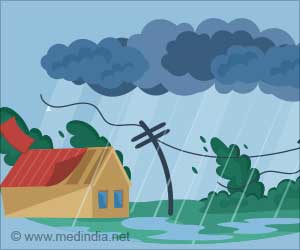An Australian scientist has proposed a radical solution to slow down global warming, by suggesting a technique which would place sulphur gas into the Earth's stratosphere to keep out the Sun's rays.
Increasing sulfur gas levels in the atmosphere to block out Sun's rays could reduce the impact of global warming, an Australian scientist has revealed.
According to a report in The Age, Professor Tim Flannery, possibly Australia's best-known expert on global warming has said that climate change is happening so quickly that mankind may need to pump sulphur into the atmosphere to survive.Flannery has suggested that sulphur gas could be inserted into the Earth's stratosphere to keep out the sun's rays and slow global warming, a process called global dimming.
The sulphur could be dispersed above the Earth's surface by adding it to jet fuel, said Flannery. Though this process would change the colour of the sky, it's the last barrier to a climate collapse, he added.
"We need to be ready to start doing it in perhaps five years time if we fail to achieve what we're trying to achieve," he said.
According to Flannery, the world was much more susceptible to greenhouse gas emissions that had been thought eight years ago.
"Regardless of what happened to emissions in the future, there was already far too much greenhouse gas in the atmosphere," he said. "Cutting emissions was not enough. Mankind now has to take greenhouse gases out of the air," he added.
Advertisement
As well as the global dimming plan, Professor Flannery said that carbon should be taken out of the air and converted into charcoal, then ploughed into farmers' fields.
Advertisement
RAS/K






